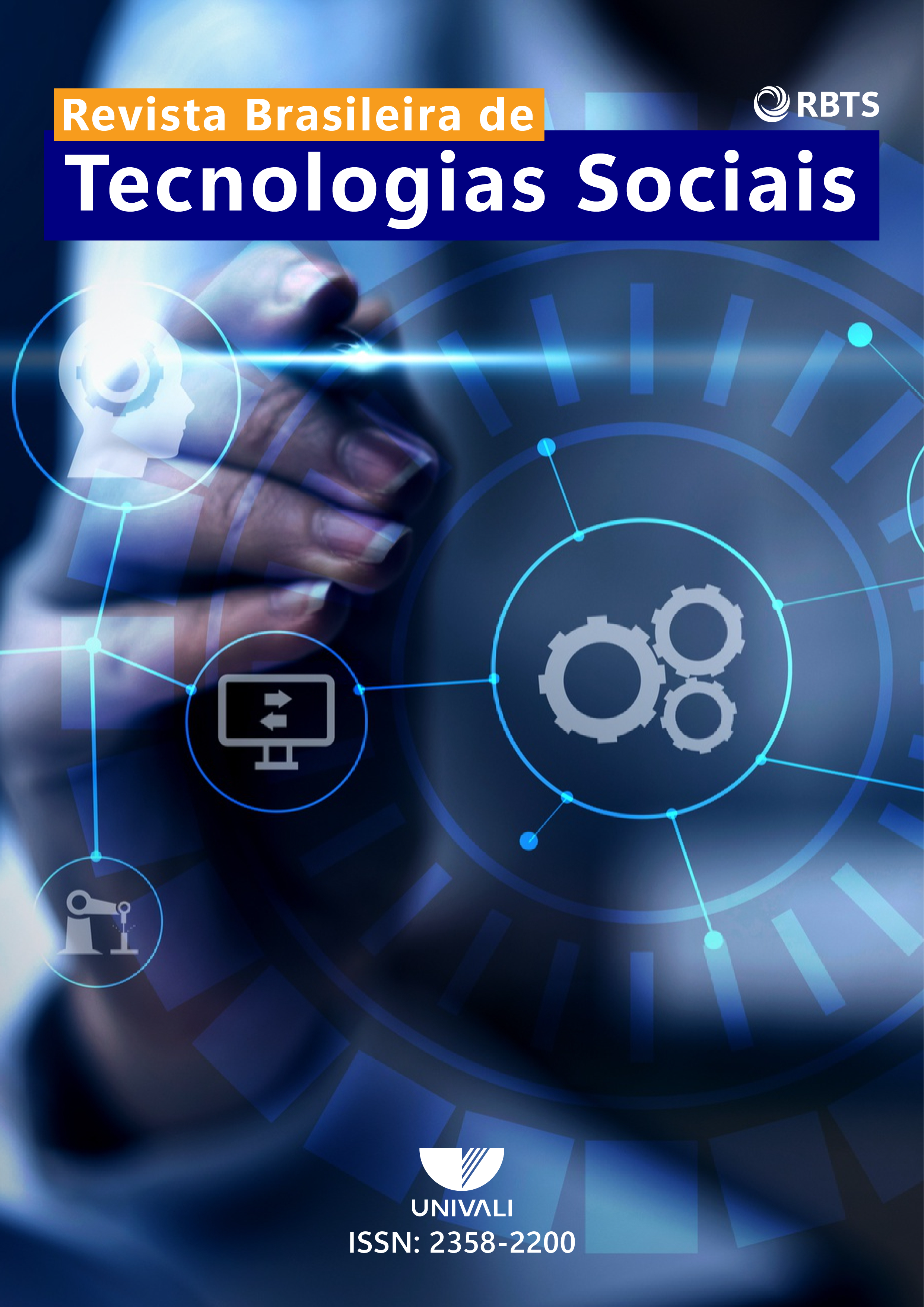
ABSTRACT:
Having overcome the acute phase of the COVID-19 pandemic, Brazil must now face the late morbidities of the post-COVID-19 state. This experience report aims to present the proposal for a regionalized ambulatory teaching service that is, innovative in t applying the principle of interdisciplinarity to the field and practice of public health. As part of the Unified Health System, the service provides health care and education simultaneously and synergistically under the aegis of interprofessional teaching-learning-research-care. The way it is organized, the way it is financed, and the inclusion of extension innovate by applying the principles and tools of primary care to secondary care. Its results reify health policy as a promoter of equity by including the right to health, the production and application of scientific knowledge, and professional training.




Referências
BARR, Hugh. Competent to collaborate: towards a competency-based model for interprofessional education. Journal of interprofessional care, v. 12, n. 2, p. 181-187, 1998.
BRASIL. Lei 8080 de 19 de setembro de 1990, http://www.planalto.gov.br/ccivil_03/leis/l8080.htm, e o Decreto 7508/11, de 28 de junho de 2011 que dispõe sobre a organização do SUS.
BRASIL. Lei 8142/90 de 28 de dezembro de 1990. Dispõe sobre a participação da comunidade no SUS. In: http://www.planalto.gov.br/ccivil_03/leis/l8142.htm, obtido em: 01/12/2013.
BRASIL. Ministério da Saúde. Secretaria de Atenção à Saúde. Núcleo Técnico da Política Nacional de Humanização. Acolhimento nas práticas de produção de saúde / Ministério da Saúde, Secretaria de Atenção à Saúde, Núcleo Técnico da Política Nacional de Humanização. – 2. ed. 5. reimp. – Brasília: Editora do Ministério da Saúde, 2010.
BRASIL. Ministério da Saúde. Secretaria de Atenção à Saúde. Política Nacional de Humanização da Atenção e Gestão do SUS. Clínica ampliada e compartilhada/ Ministério da Saúde, Secretaria de Atenção à Saúde, Política Nacional de Humanização da Atenção e Gestão do SUS. Brasília: Ministério da Saúde, 2003.
BUSARI, Jamiu O.; MOLL, Franka M.; DUITS, Ashley J. Understanding the impact of interprofessional collaboration on the quality of care: a case report from a small-scale resource limited health care environment. Journal of multidisciplinary healthcare, p. 227-234, 2017.
CABRAL, Elizabeth Regina de Melo; BONFADA, Diego; MELO, Márcio Cristiano de; CESAR, Ivana Daniela; OLIVEIRA, Rinaldo Eduardo Machado de; BASTOS, Tassia Fraga; MACHADO, Luiza Oliveira; ROLIM,Ana Carine Arruda; ZAGO, Ana Cristina Wiziack. Contributions and challenges of the Primary Health Care across the pandemic COVID-19. InterAmerican Journal of Medicine and Health, [S. l.], v. 3, p. 1–12, 2020.
CAIPE. Centre for the Advancement of Interprofessional Education. Defining IPE [Internet]. Fareham: CAIPE; 2002 [acesso 4 Jun 2021]. Disponível em: http://www.caipe.org.uk/resources/defining-ipe/
CECCIM, Ricardo Burg; FEUERWERKER, Laura Camargo Macruz. O quadrilátero da formação para a área da saúde: ensino, gestão, atenção e controle social. PHYSIS: Rev. Saúde Coletiva. Rio de Janeiro, vol.14, n.1, p.41- 65, 2004.
CECÍLIO, Luiz Carlos de Oliveira. As necessidades de saúde como conceito estruturante na luta pela integralidade e equidade na atenção em saúde. In: PINHEIRO, Roseni; MATTOS, Ruben Araújo de. (Org.). Os sentidos da integralidade na atenção e no cuidado à saúde. Rio de Janeiro: IMS ABRASCO, 2001.
DA SILVA, Jerto Cardoso; GARCIA, Edna Linhares.NUNES, Karla Gomes. Serviço-escola: reflexões sobre um percurso. In: AREOSA, Silvia Virginia Coutinho (Org.). Cenários de práticas em Psicologia [recurso eletrônico] Santa Cruz do Sul: EDUNISC, 2017,p. 60-70.
DATTA, S. Deblina; TALWAR, Amish; LEE, James T. A proposed framework and timeline of the spectrum of disease due to SARS-CoV-2 infection: illness beyond acute infection and public health implications. Jama, v. 324, n. 22, p. 2251-2252, 2020.
HOLZ, Edvalter Becker; BIANCO, Mônica de Fátima. Ergologia: uma abordagem possível para os estudos organizacionais sobre trabalho. Cadernos EBAPE. Br, v. 12, p. 494-512, 2014.
KEMP, Harriet I.; CORNER, Eve; COLVIN, Lesley A. Chronic pain after COVID-19: implications for rehabilitation. British journal of anaesthesia, v. 125, n. 4, p. 436-440, 2020.
MATTOS, Luciana Bisio, et al. Projeto de pesquisa: Observatório Regional Interprofissional Especializado para Síndrome de COVID-19 Persistente: Formação em Saúde e Cuidado Interprofissional. Blumenau, 2021.
MEDINA, Maria Guadalupe et al. Primary healthcare in times of COVID-19: what to do? Cadernos de saúde publica, v. 36, p. e00149720, 2020.
NATIONAL INSTITUTE FOR HEALTH AND CLINICAL EXCELLENCE (NICE). Covid-19 rapid guideline: managing the long-term effects of Covid-19.2020 Dec 18. Disponível em: https://www.nice.org.uk/guidance/ng188. Acesso em: 19 ago. 2023.
NUNES, Everardo Duarte. Saúde coletiva: história de uma ideia e de um conceito. Saúde e soc, São Paulo, v. 3, n. 2, p. 5-21, 1994.
PAIM, Jairnilson Silva; ALMEIDA-FILHO, Naomar de. Saúde coletiva: teoria e prática/ Public health: theory and practice. 1.ed. Rio de Janeiro: MedBook,2014, p.720.
REEVES, SCOTT et al. Interprofessional education: effects on professional practice and healthcare outcomes. Cochrane Database of systematic reviews, n. 3, 2013.
TOASSI, Ramona Fernanda Ceriotti. (Org.) Interprofissionalidade e formação na saúde: onde estamos? [recurso eletrônico]. 1ª edição.Porto Alegre: Rede UNIDA, 2017. Disponívelem:https://www.lume.ufrgs.br/bitstream/handle/10183/183942/001064798.pdf. Acesso em:10 de jun. 2020.
VIEIRA, Rárica Isidório Sampaio Feitosa de Matos;. CIOTTI, Anemir Maria Kerber Ciotti; NILSON, Luana Gabriele; MATTOS, Luciana Bisio; SPINELLI, Camila Leandra Bueno de Almeida Spinelli. CRIE Pós-COVID: potencialidades do cuidado em um serviço-escola especializado, interprofissional e integral. Revista de Gestão e Secretariado (Management and Administrative Professional Review), [S. l.], v. 14, n. 7, p. 11333–11344, 2023. DOI: 10.7769/gesec.v14i7.2485. Disponível em: https://ojs.revistagesec.org.br/secretariado/article/view/2485. Acesso em: 2 sep. 2023.
WORLD HEALTH ORGANIZATION (WHO). A clinical case definition of post COVID-19 condition by a Delphi consensus, 6 October 2021. World Health Organization, 2021. Disponível em: < https://apps.who.int/iris/bitstream/handle/10665/345824/WHO-2019-nCoV-Post-COVID-19-condition-Clinical-case-definition-2021.1-rus.pdf> Acesso em 20 de fevereiro de 2023.






The Brazilian Journal of Social Technologies is a Qualis B1 publication, according to the Qualis Periódicos CAPES 2017-2020 classification.
The Brazilian Journal of Social Technologies aims to disseminate scientific knowledge through a biannual publication, which is characterized by multithematic and interdisciplinary content aimed, preferably, at the dissemination of work developed by the country's Professional Master's Degrees, in the form of products or processes that can be characterized as Social Technologies. Currently the editors are professors Carlos Roberto Praxedes dos Santos (Public Policy Management) and Graziela Liebel (Health and Work Management).

